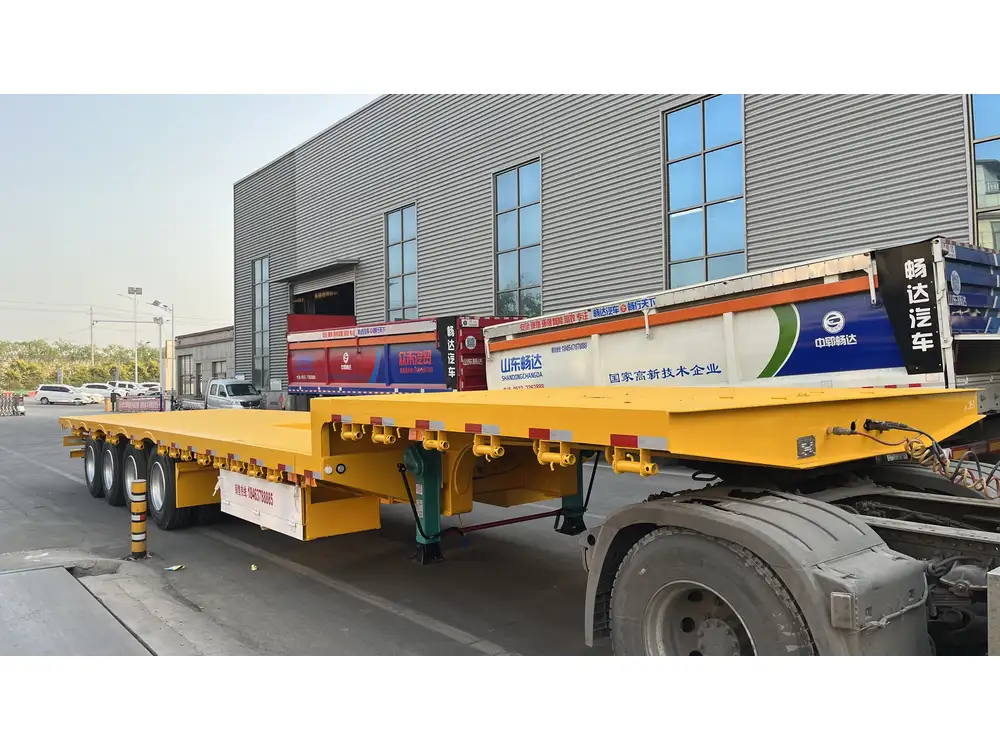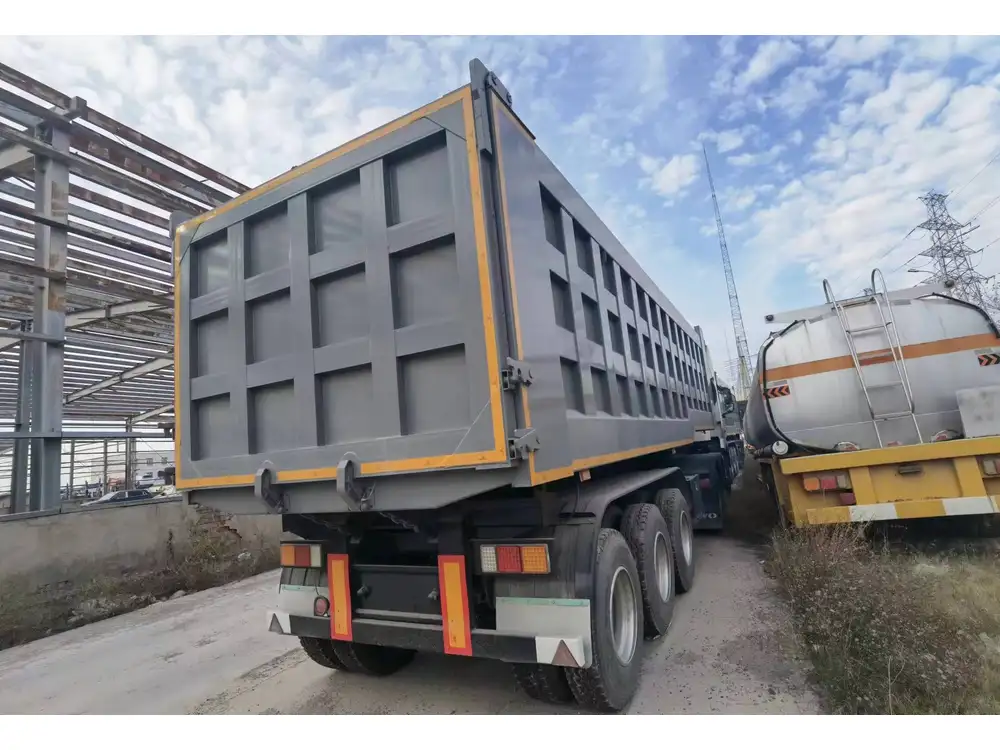When one thinks of adventure on the open road, the image of a self-contained travel trailer emerges—a versatile companion, perfectly designed for seamless travel experiences. This guide will delve into what constitutes a self-contained travel trailer, its unmatched advantages, essential features, and how it caters to various needs, ensuring that not only your wanderlust is satisfied, but also your specific travel requirements.
What is a Self-Contained Travel Trailer?
A self-contained travel trailer is a mobile living unit equipped with facilities that allow it to function independently without needing external connections. This design typically includes integrated features such as a kitchen, bathroom, and sleeping accommodations. The essence of ‘self-contained’ lies in the trailer’s ability to provide basic necessities while on the road or parked in remote locations.
Key Features of Self-Contained Travel Trailers
| Feature | Description |
|---|---|
| Kitchen Facilities | Includes a stove, refrigerator, sink, and often a microwave, enabling meal preparation on-site. |
| Bathroom Amenities | Features a toilet, shower, and sink, facilitating personal hygiene without external facilities. |
| Sleeping Quarters | Equipped with beds, often convertible, allowing flexibility for accommodation. |
| Water Systems | Freshwater tanks and wastewater holding tanks ensure independence from external water sources. |
| Power Supply | Solar panels, batteries, or generators provide energy for lighting and appliances. |

Types of Self-Contained Travel Trailers
Understanding the various types of self-contained travel trailers can help travelers select the right model that matches their needs. Here’s an informative categorization:
Conventional Travel Trailers
- Typically ranges from 15 to 40 feet in length.
- Suitable for families, with varying floor plans and luxury options.
Fifth-Wheel Trailers
- Designed to be towed by a pickup truck with a special hitch in the truck bed.
- Offers spacious interiors and is known for stability and ease of towing.
Teardrop Trailers
- Small, compact, and aerodynamic; ideal for solo travelers or couples.
- Provides basic sleeping arrangements and a small outdoor kitchen.
Toy Haulers
- Combines living space with a garage area, catering to outdoor enthusiasts with recreational toys (like ATVs or motorcycles).
- Flexible layout offers unique trailer options.
Advantages of Owning a Self-Contained Travel Trailer
The impact of choosing a self-contained travel trailer goes beyond mere convenience; it significantly shapes the travel lifestyle. Here are the advantages:
1. Enhanced Flexibility and Freedom
Owning a self-contained travel trailer allows for spontaneous road trips with minimal planning. Whether exploring national parks or seeking remote locations off the grid, adventure beckons without the constraints posed by hotel bookings or campground facilities.

2. Cost Efficiency
While the initial investment can be substantial, self-contained travel trailers can be cost-effective in the long run. They eliminate the need for continuous hotel expenses, dining out, and costly amenities. For frequent travelers, this translates to significant savings.
3. Comfortable Living
Traveling in a self-contained trailer provides the comforts of home wherever you roam. The integration of essential facilities ensures daily routines can be maintained, bringing a sense of normalcy on the road and enhancing overall enjoyment.
4. Pet-Friendly Options
A self-contained travel trailer can cater to families with pets. More spacious than a standard vehicle, it can accommodate furry companions, ensuring they join the adventure without the stress of boarding.

Essential Considerations When Choosing a Self-Contained Travel Trailer
1. Size and Weight
Potential owners must consider their vehicle’s towing capacity, which influences the size of the trailer they can safely tow. Larger, heavier trailers often provide more amenities but require more substantial towing equipment.
2. Construction Quality
The build quality of the trailer matters significantly for durability and longevity. Look for trailers constructed with high-quality materials, reinforced frames, and weather-resistant features to endure various conditions.

3. Layout and Design
Assess the interior layout to ensure it meets your needs. Consider factors such as kitchen size, bathroom location, and sleeping arrangements. An optimal layout increases comfort, especially on extended trips.
4. Brand Reputation and Reviews
Research reputable brands known for reliability and customer satisfaction. Read reviews from current users to gauge long-term performance, after-sales service, and warranty options.
The Importance of Maintenance for Self-Contained Travel Trailers
Proper maintenance of your self-contained travel trailer can prolong its life and enhance your travel experience. Consider the following maintenance practices:

Regular Checks and Maintenance Tasks
| Maintenance Task | Frequency | Description |
|---|---|---|
| Wheel and Tire Inspection | Monthly | Inspect for damage or uneven wear; ensure proper inflation. |
| Brake System Evaluation | Bi-Annual | Check brake fluid, pads, and system functionality. |
| Plumbing System Review | Seasonal | Inspect for leaks and flush fresh water systems regularly. |
| Roof Sealing | Annually | Ensure roof seals are intact to prevent leaks and damage. |
| Electrical System Testing | Semi-Annually | Check battery performance, and assess connections and wiring. |
By adhering to a consistent maintenance routine, you can preempt potential issues that could arise during your travels, thus augmenting safety and comfort.
Conclusion: The Ultimate Travel Companion
In the landscape of travel, few companions rival the self-contained travel trailer. Its ability to provide an independent living experience, along with modern conveniences, marks it as an essential tool for those seeking exploration and adventure. As travel preferences evolve, the relevance of self-contained travel trailers expands, appealing to families, solo adventurers, and outdoor enthusiasts alike.
It’s crucial to deeply analyze one’s requirements against available models, and engage in thorough maintenance to ensure a fulfilling journey. When you combine the freedom to roam, comfort, and everything necessary for a mini-home on wheels, investing in a self-contained travel trailer emerges not just as a purchase, but as a lifestyle choice.
Whether you’re planning a weekend getaway or embarking on a cross-country road trip, embracing the world of self-contained travel trailers might just be your ticket to unforgettable adventures that speak to the spirit of wanderlust. Therein lies a world of possibilities—get ready to explore!
This carefully crafted article seeks to paint a comprehensive picture of self-contained travel trailers, addressing potential users’ queries while optimizing for search engines, ensuring that it stands tall in search results related to “what is a self-contained travel trailer.”



